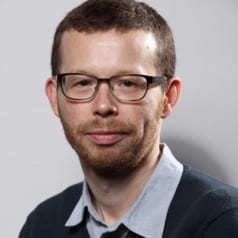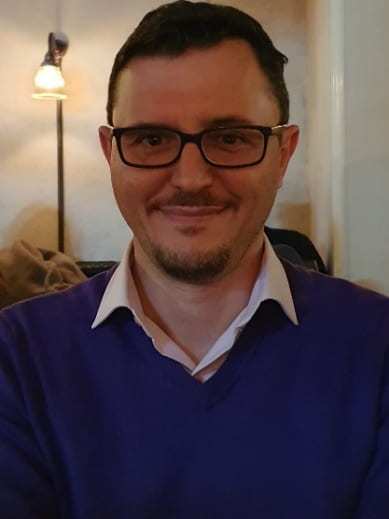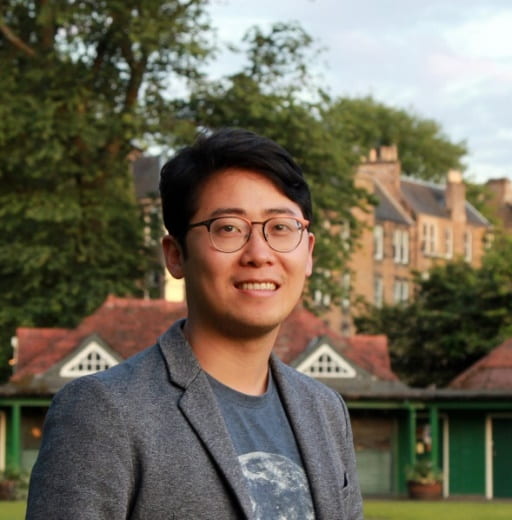Dr Angelique Chettiparambil Rajan
Professor of Urban Planning and Governance, Department of Real Estate and Planning, University of Reading
Ideological Fantasies and planning: A systems theoretical perspective
A systems theoretical perspective on the idea of ‘ideology’ and ‘fantasy’ drawing upon Niklas Luhmann’s (1995) theory of societal differentiation will be presented .
Luhmann’s theory of diffrentiation imagines a society of increasing complexity wherein social evolution is characterised not by stratification or simple division, but by functional diffrentiation. This functional diffrentiation in turn leads to increasing complexity and then further functional diffrentiation thus instilling itself as the primary mode of social evolution (Luhmann 1977). Luhmann describes a society that is no longer centralised or capable of scripting a description of itself. Instead all self-descriptions are contingent on particular reductions depending on the system observing society and for Luhmann these denote ideologies. In the absence of such a description then the attribution of progress in society to organizational rationalities is nothing but a fantasy (Luhmann, 1984).
This presentation will explore the status of planning within this situation of ideological fantasy.

Dr Kristina Grange
Professor of Urban Planning and Design Theory, Architecture and Civil Engineering, Urban Design and Planning, Chalmers University of Technology, Gothenburg, Sweden
Abstract
The term ‘planetary urbanisation’ has recently been re-introduced as an epistemology of the urban, aiming to re-conceptualise the world as constituted by an extended urban fabric that lacks global exteriority. The article presented here was co-written with Associate Professor Michael Gunder during his visit as a Guest Professor at Chalmers University of Technology in Gothenburg, Sweden, during May-June 2018. The article draws on the philosophy of Jacques Rancière, and specifically on his thoughts on ‘the distribution of the sensible’, while arguing that we currently are witnessing an urban domination of the planet that not only fails in recognising the non-urban outside, but perhaps more importantly, increasingly is creating ‘geographies of despair’. In this presentation, the co-written article will be rethought in the light of Michael’s earlier works, and especially his work on ideological fantasies.

Dr Jean Hillier
Emeritus Professor of Sustainability and Urban Planning, Centre for Urban Research, RMIT University, Melbourne
Nature-Based Solutions as Ideological Fantasy
In 2009, Michael Gunder and I wrote about ‘sustainability’ as an empty signifier and ideological fantasy which served to sustain capital accumulation and economic growth, often at the expense of sustaining non-human nature. This fantasy has expanded in the last decade, with the burgeoning of greenwash terms, including ecosystem services, green infrastructure, envirodevelopment, and so on, several of which have been incorporated into the relatively new idiom of nature-based solutions. In this paper, I explore discourses of nature-based solutions as illusionary ideological fantasy in order to unpack the powerful relationalities reinforced through its proliferation and implementation in planning practice. I conclude that there is a need to recognise nature-based solutions for the ideological fantasy they are and to generate practices of spatial planning which transverse this fantasy and begin to confront the real socio-economic-environmental questions of our time.

Dr Crystal Legacy
Associate Professor in Urban Planning at the Melbourne School of Design, The University of Melbourne
Dr Andy Inch
Senior Lecturer, Department of Urban Studies and Planning, The University of Sheffield
Fantasy and the Collective Political Subjects of Transformative Planning
As Michael Gunder’s Lacanian planning theory explored so effectively, planning ideas and practices are permeated with fantasies at all levels. Normative constructions of places, processes, actors, techniques, instruments, and institutions perpetually hold out the promise of a form of planning capable of finally overcoming the myriad failings of the past, soothing political conflict whilst smoothing out the contradictions in capitalist urbanisation. Critical planning theories rightly call for a ruthless deconstruction of all such fantasies, exposing the ways they misrepresent realities and enable ongoing exploitation by dominant elites. However, deconstruction alone is not enough. A commitment to progressive, radical, or transformative planning practices needs to also consider how the power of fantasies could be harnessed for other ends. Progressive planning requires images of desirable futures and persuasive stories about how people can work collectively towards them. Drawing on vignettes from planning practice in the UK and Australia, in this paper, we consider the role such fantasies play in framing and motivating actors who contest dominant models of development. In doing so, we seek to develop critical hermeneutics attuned to reading the fantasies that motivate action in often inchoate, messy, and multi-vocal development conflicts. In doing so we seek to question the possibility for new collective subjects to emerge from such conflicts by coalescing around transformative fantasies.


Dr Mohsen Mohammadzadeh
Senior Lecturer in Planning, School of Architecture and Planning, The University of Auckland
The Exigency of Alternative Fantasies for Traversing the Neoliberal fantasies in Planning Practice
I was honoured to complete my PhD in Planning Theory under the supervision of Michael Gunder. From 2009 onwards, I learnt a lot from Michael and this paper is one of the outcomes of my long journey with him. Over the last four decades, planning has constantly been under attack because it fantasises utopic perspectives. In this paper, grounded on Lacan’s five discourses – the master, the university, the hysteric, the analyst, as well as capitalist discourse – I explain why alternative fantasies in planning practices are vital in challenging neoliberalism as the new master that has transformed planning practices. Based on the university discourse, I argue that neoliberalism promotes market-based knowledge. The hysteric discourse helps to explain why planners are often unable to offer alternative knowledge beyond neoliberal fantasies. Referring to the capitalist discourse, I argue that neoliberalised planning disavows the failures of neoliberalism, and more importantly, it impeaches the existence of planning. I use the analyst discourse to conclude that insurgent planners should utilise alternative fantasies to traverse neoliberalism.

Dr Chuan Wang
Lecturer, School of Architecture, Southeast University, Nanjing, China
Ideological Fantasy of Totality: Impasse in the Transition to Territory Spatial Planning in China
Along with the Chinese Government’s institutional reform in 2018, all spatial-related planning issues were incorporated into territory spatial planning (TSP), aiming to solve the long-term problem of fragmentation among urban-rural planning, land use planning, and development planning. In the first three years, the unprecedent TSP practice has faced severe disputes, conflicts, and doubts. Based on TSP policy analysis and interviews with frontline planners in major Chinese planning institutes, this research argues that the ideological fantasy of totally top-down territorial control leads to the impasse in planning practice. The TSP constructs an ideological fantasy that if all territorial spatial arrangements were systematically managed at all levels (national, provincial, prefectural, county, and town), all conflicting or chaotic issues pertaining to planning would have been eliminated. However, this imaginary totality ignores the increasing bottom-up demands for flexibility and adaptivity to tackle the uncertainty and dynamics in local urban development. Instead of seeking totality, this research calls for a progressive approach in a framework-component structure in the future TSP practice.

Dr Tanja Winkler
Associate Professor, City & Regional Planning Programme Convenor, School of Architecture, Planning & Geomatics, University of Cape Town, South Africa
Abstract
Drawing on a Lacanian conceptualisation of fantasy, Gunder (2014) explores how fantasies appease our inner most desires. But fantasies are not only confined to individuals. They equally find expression in policy frameworks and strategies, even if planners know that their fantasised outcomes cannot be achieved. For Gunder (2006, 2011), the tendency to uphold unattainable fantasies negates possibilities to explore alternatives. In response, Gunder (2014) suggests acquiring a different relationship to fantasies: one that acknowledges their existence while prompting planners to forgo improbable desires that obscure social realities. This, in turn, necessitates an ethics of taking risks and making radical decisions, which might be interpreted as an unlearning of conventional practices; as a call for an epistemic de-linking from Western categories of thought; and, as Gunder and Winkler (2021) explore, an embrace of an ethics of care that acknowledges all interacting objects, and not just the human, in our planning endeavours.

Dr Elham Bahmanteymouri
Lecturer in Planning, School of Architecture and Planning, The University of Auckland
Logic of Contingency: Traversing the fantasmatic logics of Capitalism!
As a former PhD student of AP Michael Gunder, I had the wonderful opportunity of learning from and closely working with Michael. Developing on Michael’s analysis of fantasy, I realised that the Lacanian mechanism of drive and the inversion of fantasies is the main cause of our entanglement in the hegemonic ideology of capitalism rather than desire and the fantasies that maintain desire (Bahmanteymouri, 2020). In fact, a combination of drive and desire creates the fantasmatic logic of setting strategies with paradoxical objectives and finally capitalist (undesirable) outcomes. Žižek and Laclau argue that the main role of fantasmatic logic is covering over the logic of contingency that is hidden within the hegemonic capitalist discourse. Fantasmatic logics conceal impossibilities of capitalism and result in no alternatives to this discourse. I argue that there is no opportunity to deal with these fantasmatic logics of capitalism from within capitalism. Since capitalism is maintained by fantasies such as those of Western values, i.e., society commanded enjoyment (Gunder & Hillier, 2009), I contend that non-Western thought such as Iranian philosophy may offer values and ethical dimensions that provide logic(s) of contingency that can help traverse the fantasmatic logics of hegemonic ideology of capitalism.

Recent Comments